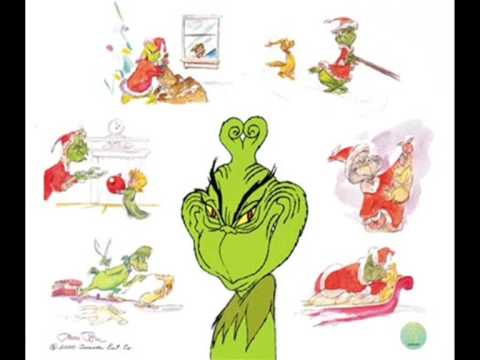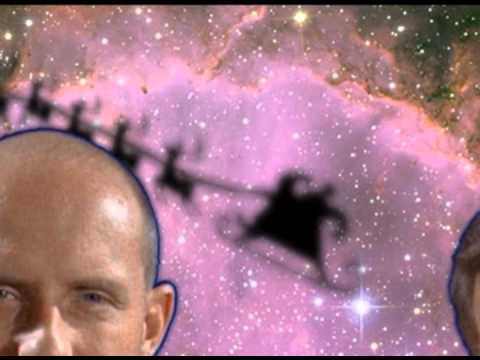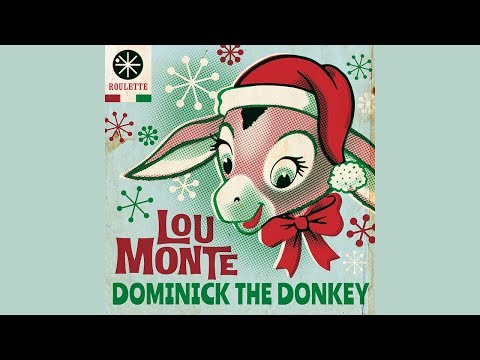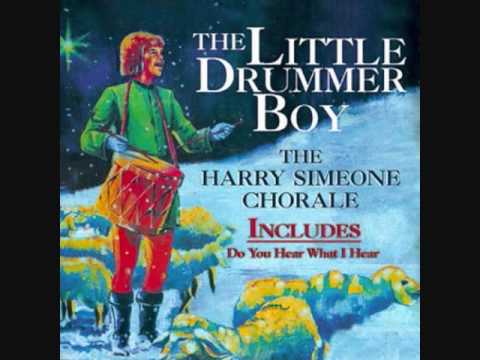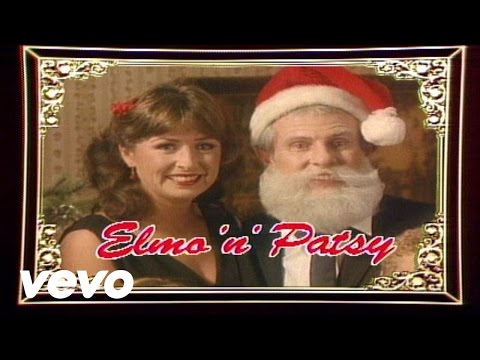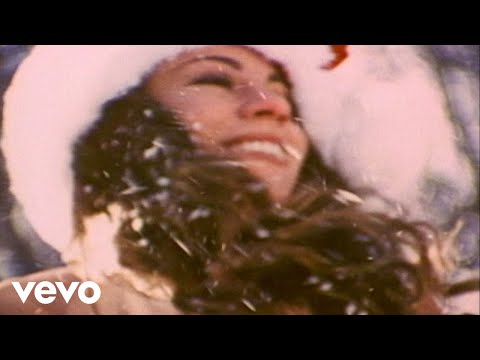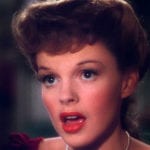10Tony The Tiger Sang ‘You’re A Mean One, Mr. Grinch’
Boris Karloff famously narrated the Dr. Seuss classic, How The Grinch Stole Christmas. But the horror film veteran had a little secret—he couldn’t sing. Instead, the production team called on voice actor Thurl Ravenscroft to handle the musical numbers. Ravenscroft’s singing was unknown for years, because he did not receive a credit on the telecast, leading many to believe it was Karloff who knocked the song out of the park. Ravenscroft might not be a famous name to you, but you surely know his voice. He voiced characters on Disney rides and shows (including Buff from the Country Bears Jamboree) but is best recalled for his TV work. He played “Tony The Tiger” for Kellogg’s Frosted Flakes TV commercials. You’ll never hear “they’re grrrrrrreat!” again without thinking of the Grinch. There are actually two versions of “Mr. Grinch”, both of which get air play today. The original TV version features sound effects of crashes and booms (as the Grinch moves through the homes and liberates Christmas gifts). If you hear the sound effects version, that’s the version lifted from the show. The clean version was intended for radio play.
9‘Jingle Bells’ Was A Thanksgiving Song
Jingle Bells is now firmly associated with Christmas, but originally the song was more connected with Thanksgiving. The story is that James Lord Pierpont, a music director at his father’s churches in Savannah, Georgia and Medford, Massachusetts, wrote the song for a Thanksgiving celebration. Where exactly that happened is up for debate—the cities of Medford and Savannah both claim the song originated in their city. The Savannah story has the children of the congregation enjoying the song so much they asked Pierpont to include it in their Christmas pageant. Regardless, the song, now associated with Christmas, grew exponentially in popularity. Watch this video on YouTube If you’re really hung up on the two cities claiming “Jingle Bells”, there’s a hint to which is correct. Medford claims that Pierpont was inspired by sleigh racing on Salem Street, before writing the song at the Simpson Tavern over on High Street. Savannah poo-poos that notion. Pierpont moved to Savannah in 1853, and resided there for four years before filing his copyright for the song “One Horse Open Sleigh” in 1857. Savannah asks why he would wait seven years to copyright the song if he wrote it in Medford? Good question.
8‘Jingle Bells’ Was The First Song In Space
On December 16, 1965, astronauts Walter “Wally” Schirra Jr. and Thomas P. Stafford were orbiting earth in Gemini 6, approaching Gemini 7 (piloted by Frank Borman and Jim Lovell) for a historic space meeting. It was the closest two man-made spacecraft had ever been in orbit, mere feet apart. But just before Gemini 6 was due to return to earth, the pair reported they saw a UFO: “We have an object, looks like a satellite going from north to south, probably in polar orbit . . . Looks like he might be going to re-enter soon . . . You just might let me pick up that thing . . . I see a command module and eight smaller modules in front. The pilot of the command module is wearing a red suit.” And with that, Schirra and Stafford produced a harmonica and bells stashed aboard the space capsule and played “Jingle Bells.” It was the first song to be performed in space. The duo had actually practiced the surprise performance, doing a few run-throughs on Earth. Mission Control had no idea it was coming.
7Jews Wrote Christmas Classics
“Rudolph The Red-Nosed Reindeer,” “Rockin’ Around The Christmas Tree,” and “Holly Jolly Christmas” are songs you probably know well. They were all written by Johnny Marks, who was Jewish. His brother-in-law wrote the original Rudolph story, which landed him his first Christmas songwriting gig. And don’t think just because he wrote some of the most beloved Christmas songs of all time, he might throw some stockings around the chimney or plant a tree in his living room; he never even bothered. In fact, he wasn’t thrilled that his legacy was holiday tunes. “This is not exactly what I hoped to be remembered for,” he recalled in 1980. Yes, he wrote other non-Christmas songs, but it’s not worth listing any because you’ve never heard of them. Marks wasn’t alone in writing for the Gentiles’ favorite holiday season. The proudly Jewish Irving Berlin wrote “White Christmas.” And “Let It Snow”? The duo of Jule Styne and Sammy Cahn co-wrote it, making the song 200 percent Jewish. “The Christmas Song” was written by Mel Torme, and yes, he was Jewish. In fact, Torme released an entire album of Christmas tunes in the 1990s.
6‘Dominick The Donkey’ Was Financed By The Mob
Lou Monte recorded “Dominick The Donkey” in 1960. It was a modest hit, but fared much better in Great Britain 51 years later. This was thanks in large part to a campaign by BBC Radio One DJ Chris Moyles, who called on his minions (or listeners, whatever) to elevate the song up the British iTunes chart. He managed to land the bilingual Donkey (he speaks Italian, after all) at number three, moving 93,000 units. But if it hadn’t been for the Mafia, the song would have never been recorded at all. The story goes that Monte, who was Italian, received support from the Gambino crime family, one of the biggest Mafia families in the US. Carlo Gambino was the family boss in the 1960s, and a loan to a fellow Italian with an idea to make a profit wasn’t out of the ordinary. The mob wasn’t exactly in the music business, but they were known for helping out singers, such as Frank Sinatra. There aren’t any stories of Monte’s record producer waking up with a horse’s head in his bed so things seem to have gone smoothly, whatever the extent the mob played in financing the song.
5‘Do You Hear What I Hear’ Was Inspired By Nuclear War
Written in 1962, “Do You Hear What I Hear” has been recorded over 100 times by various artists, and is firmly associated with the Christmas season. But when it was first written, Noel Regney and Gloria Shayne—husband and wife at the time—had something else in mind: war. The Cuban Missile Crisis was in full swing when the pair wrote the song as a “prayer for peace.” The line about the star “with a tail as big as a kite” isn’t the Star of Bethlehem: it’s a missile. The Harry Simeone Chorale (also known for performing “Little Drummer Boy”) first released the song in November 1962 and sold over 250,000 singles before Christmas that year.
4‘O Come, O Come, Emmanuel’ Is Really Old
“O Come, O Come, Emmanuel” gained popularity in the 18th century, which would make it pretty old today. But its origins are actually a wee bit further back. The song, originally in Latin, was penned around the ninth century. The first verse appears to be a reference to Psalms 137, alluding to the bondage of Israel. The best guess is that Gregorian monks first composed the song, but the true lineage is unknown. It does have a pretty clear history of being associated with Christmas for almost 1200 years. John Mason Neale translated the song from Latin to English in 1851, which helped it grow in popularity. It is now one of the oldest continually sung (or chanted, depending on the period) Christmas songs. It’s also one of the few Christmas songs that are both known in popular culture and sung in churches, especially in the Catholic faith around Advent.
3The First Christmas Song To Mention Santa
The original Christmas carols were about the birth of Jesus. It wasn’t until much, much later that Santa Claus entered into the equation. A close second to “Jingle Bells” as the first American Christmas song, “Up On The House Top” was written by Benjamin Hanby in 1864. The song mentions “St. Nick,” who is of course Santa Claus, making it the first carol to mention Santa. Hanby drew his inspiration from the Clement Clarke Moore Poem A Visit from St. Nicholas. Both deal with the notion of a sleigh on a roof and going down the chimney, something that was absent from prior Father Christmas or Sinterklass incarnations. Sinterklass—the Dutch Santa—doesn’t even go down chimneys. His assistant “Black Pete” does, but that’s for another list.
2A Veterinarian Sings ‘Grandma Got Run Over By A Reindeer’
It is a staple on Christmas song lists—of least favorite Christmas songs, that is. In 1978, Randy Brooks penned “Grandma Got Run Over By A Reindeer” as sort of a joke, and 40 million copies later, the joke is on all of us. Watch this video on YouTube Brooks asked the husband-and-wife duo of Elmo and Patsy to actually perform the song. Patsy doesn’t actually sing or play on the track and she and Elmo divorced not too long after the song started getting serious air-time. Elmo is Elmo Shropshire, D.V.M. (Doctor of Veterinary Medicine). He graduated from Auburn University and is a licensed veterinarian specializing in equine care. He’s easily the best known vet parody singer out there. The song has been officially recorded thrice. The original recording was released in 1979, with re-recordings in 1982 and 1984. The 1984 version is the best known version, which is also recalled for its descriptive music video.
1Everyone Loves Christmas Songs
There are two types of people in the world, those who like Christmas songs and filthy liars. You disagree? You hate when those radio stations switch over to all Christmas all the time? You’re lying. Watch this video on YouTube Ratings double at radio stations that play Xmas tunes 24/7. In 2011, 100 Clearchannel stations (the largest owner of radio stations in the US) flipped to Christmas music only in December and watched the profits come roaring in. And really, if you think putting up Christmas advertisements before Thanksgiving is tacky, what about Christmas music 11 weeks before Christmas? Yep, in 2013 a Syracuse Radio Station started their holiday songs on October 5. So if you feel the need to hear Mariah Carey’s “All I Want For Christmas Is You” several hundred times, the Christmas season is right up your alley—it was the most played song in the New York market in 2012. You may truly not like it, but advertising dollars talk, so don’t expect it to ever go away. Jake wrote a trivia e-book filled with crazy stuff like the kind you just read in this list. You can follow him on twitter for more useless facts.
